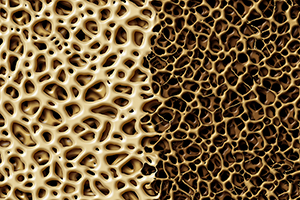



| By Dr. Ronald Hoffman
Irritable bowel syndrome, better known as IBS, is one of the most common digestive disorders seen by physicians. Twice as many women suffer from IBS as compared to their male counterparts. Medical estimates report that up to 20 percent of adults may be affected by IBS. That means that more than 40 million Americans experience IBS every year. IBS is not a life sentence, and most people who have it can lead active and productive lives if they follow the best treatment protocol for their situation.
In IBS, the normal rhythmic contractions of the digestive tract, referred to as peristalsis, become uncoordinated and irregular. This interferes with the normal digestive and elimination process of food and wastes respectively, and can lead to an accumulation of waste material resulting in bloating, distention, constipation and gas. Symptoms of IBS include alternating constipation and diarrhea, abdominal pain, mucus in the stools, bowel urgency, nausea, flatulence, bloating and cramping. Usually, specific foods trigger symptoms, and pain is relieved after a bowel movement. Even if an individual with IBS is eating regular meals, uncoordinated muscular contractions can result in malabsorption. Nutritionists typically take this into account when designing a nutritional plan for IBS and include 30 percent more protein than normal as well as increased vitamins and minerals, which can quickly become depleted in with chronic diarrhea.
From a diagnostic standpoint, this is a vexing disorder. There are no physical signs of disease in bowel tissue with IBS, and its cause or causes are not well understood. Diagnosis of IBS requires ruling out disorders that can cause similar symptoms, such as ulcerative colitis, Crohn’s disease, diverticulitis and even lactose intolerance.
Many other conditions can be related to IBS, including candidiasis, colon cancer, diabetes, gallbladder disease, malabsorption disorders, pancreatic insufficiency, ulcers, parasitic infection such as amebiasis and giardiasis, fibromyalgia and, most commonly, dietary allergies and intolerances. When presented with a case of IBS, each of these factors must be addressed. It is quite common for your integrative medical doctor to order a CDSA (comprehensive digestive stool analysis), an IgG RAST (food allergy test), plus skin and urine tests for candida in an effort to address the full spectrum of your condition.
From a nutritional perspective, test results and personal history dictate the course of treatment. If dietary allergies and intolerances are identified, they must be eliminated. If an over growth of candida albicans is identified, then that must be treated medically and nutritionally. IBS even can be brought under control in conditions that normally would leave the patient slipping between the cracks of the medical care system. For example, let’s say a patient presents with classic IBS symptoms, has an unremarkable CDSA, maybe one food allergy and no bacterial, parasitic or fungal overgrowth and all of the aforementioned associated conditions were ruled out, instead of jumping on the “it’s all in your head” bandwagon, a trial implementation of gluten and dairy restriction, stress reduction and targeted supplementation can yield positive results. If all else fails, I turn to a nutritional program called the Specific Carbohydrate Diet that is very effective in most gastrointestinal disorders.
Supplements that may be helpful for IBS include the amino acid L-Glutamine, beneficial bacteria such as acidophilus (NCFM strain) and bifidobacterium infantis, evening primrose oil, a fish oil supplement called Fisol (containing eicosapentaenoic acid and docosahexaenoic acid), psyllium, glucomannan, enteric-coated peppermint, fennel, B-complex and aloe vera.
Dietary strategies that are effective include low-fiber diets, high-fiber diets, allergen identification and elimination, rotation diets, candida diets and the Specific Carbohydrate Diet.
While IBS can be a frustrating disorder that interferes with the quality of life, nutritional protocols are available to help one gain control over this frustrating disorder and return to an active lifestyle.
For more information on this subject: http://www.scdrecipe.com/journal-entry/healing-foods-scd-cookbook-radio/
Though we think of declining estrogen as the hallmark of menopause, it's actually common for…

Up to 12 percent of Americans have ulcers at some point in life. Peptic ulcers…
Gallbladder disease is a modern illness. An estimated 20 million Americans have gallbladder disease. The…

Lately, I’ve been sharing with Intelligent Medicine listeners that I’ve been augmenting my diet with…

Q: I am a 77-year-old woman. On recent bone density test, lumbar spine results range…

The 1973 sci-fi movie Soylent Green depicts a dystopian future in which over-population and environmental…

A New Era in Wellness: Non-CBD Innovations with Lex Pelger, Part 1

Our virtual voicemail is open 24/7, so there's no need to wait to submit your questions for Dr. Hoffman. Leave a message, and you may hear your question featured on the Intelligent Medicine radio program!